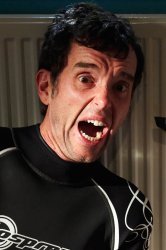
A gradual but inevitable descent into cricket-based loathing and bile.
World T20: The Ten Worst Decisions
The World T20 was a funny old tournament and one of the standout points was the captains shared some terrible moments. Perhaps it stems from so many teams having different skippers for different formats – after all Stuart Broad was noticeably poor, AB de Villiers had several bizarre spells and wiser men than us have wondered quite how George Bailey captains Australia. Interestingly, both the finalists were led by their Test captain, although we’ll just pretend that India and New Zealand weren’t too.
Here, in no particular order, are ten of the most perplexing and idiotic decisions of the tournament, mostly from captains, but also emanating from selection boards, the commentary box and those berks at the ICC.
Ross Taylor dropping down the order
New Zealand had a strange time of it and they suffered from having few genuine top class players. This led to constant tinkering with both their personnel and their order. In their opening match Ross Taylor hit a quick 14* from No.4, coming in after Martin Guptill, James Franklin and Brendon McCullum; they set Bangladesh a mighty target and won by plenty of runs. Against Pakistan, however, Rob Nicol opened with Kane Williamson and Taylor demoted himself to six, behind Daniel Vettori and Jacob Oram, but ahead of Franklin. They stuttered from 102/2 and his 26 from 11 balls was too late to push his side on to victory: they lost by 13 runs. It made no difference to qualification, but was characteristic of a team that never looked assured of how they could maximise their potential and as such, in the Super Eights, tied with both the eventual finalists (and subsequently lost both Super Overs).
Xavier Doherty bowling the final over to the West Indies
We’re never too shy to criticise George Bailey around here and he regularly struggled both as batsman and captain in the tournament (although the latter is tempered somewhat by Shane Watson not being allowed to bowl all the overs and face all the deliveries). We’ll acknowledge that he might have considered their best chance of victory in their semi-final would b evia removing Chris Gayle, and therefore having his front line bowlers bowl out their allocations might have made sense. But with one over to go and West Indies already on an imposing 180/3, he was left with the choice of Xavier Doherty (23 runs from two overs), Brad Hogg (21 runs from three overs) or David Hussey (22 runs from two overs). Whoever bowled would probably have conceded plenty to Gayle and Kieron Pollard anyway, but Doherty’s gentle left-armers were precisely what West Indies required and the additional 25 runs may just have given them the belief, the momentum and swagger to then go out and crush Australia’s batsmen.
Ravi Bopara’s selection against Sri Lanka
England were always likely to struggle against Sri Lanka in a must-win encounter and in advance there was plenty of discussion about what the best XI would be. Most of the talk centred on Craig Kieswetter and, to a lesser extent, the right combination of bowlers. No-one, not even the most die-hard Essex supporters, suggested playing Ravi Bopara. He hadn’t played in three weeks and his run of previous scores read thusly: 1, 3, dnb, 2, 16, 0, 6, 0, 6. His innings of one run from six balls ended with him missing a dead straight ball from Jeevan Mendis, to absolutely no-one’s surprise. Salt, vinegar and carbolic acid was added to the wounds by the fact that he bowled quite tidily, but was restricted to only two overs in a plan set in advance. Samit Patel bowled the other two, and was blasted for more than twice as many runs.
AB de Villiers in general
In their first match, South Africa beat Zimbabwe by ten wickets. In their second, they scored 78 runs in their allotted seven overs, with AB de Villiers top-scoring with 30 runs from 13 balls as they defeated Sri Lanka. So far, so good. But in the Super Eights against Pakistan, the team lumbered along to 133/6, with de Villiers coming in at six (after 12 overs had already passed). He scored a quick 25, but it couldn’t compensate for Richard Levi, Jacques Kallis and Farhaan Behardien all scoring at a run rate lower than 10. He promoted himself to number five against Australia and number three against India (effectively opening, as Levi fell for a duck), but by then South Africa were struggling to qualify.
Nor was his captaincy in the field particularly effective, with the match against Pakistan really catching the eye. South Africa had fought back well and Pakistan were 76/7 chasing a target of 134. However the Umars – Akmal and Gul – were having a wild time against the quicker ball, whereas the spinners had generally been economical. Yet de Villiers persevered with Kallis, the Morkels and Steyn for the last five overs and unsurprisingly the ball kept disappearing over the boundary. Even Saeed Ajmal was able to guide his only ball (from Morne Morkel) to third man for a match-winning four.
Thinking that Shahid Afridi is still a decent bat
With the ball, Afridi did quite well: he bowled four overs every match and conceded an average of 7.12 runs per over, even if he only collected four wickets. However, with the bat, Afridi was an absolute calamity. For a long while, Afridi’s batting has lived on reputation alone – he’s scored in excess of 30 only once in T20Is in two years and in the same period has just three ODI 50s. Eight of his last ten ODI innings have ended in single digits. That he was twice out for golden ducks (as well as a two-ball four) was typical of his form, mindset and complete lack of responsibility. He was promoted to bat at three against India, to howls of laughter in the 51allout yurt, but at least he reached double figures before holing out in the deep. Afridi is a huge cricketer, one who we find is hard to hate despite a long list of misdemeanours, and one whose characteristics and abilities are well-suited to the T20 arena. But batting as he did was alarmingly out-of-kilter with the type of batting that flourished in this tournament. If anyone – in the Pakistan camp, in the media, in Ouagadougou – still thinks ‘Boom Boom’ is a decent batsman, they need to be donated to science.
William Porterfield deciding to hook his first ball
Beforehand, in a podcast previewing the tournament, three guys who shall remain nameless all agreed that Ireland had a good chance of qualifying for the Super Eights at the expense of either Australia or the West Indies. This prediction was partly based on the fact that the Irish top order were all decent county players, and partly it was due to blind faith, but mostly it was down to the pints of Guiness we’d been quaffing since the Kingfisher ran out. A solid start would be paramount for Ireland, but from the opening ball of the tournament’s second match, when William Porterfield top-edged a Shane Watson bouncer to long leg, they were on the back-foot.
Ahead of their second match, Porterfield confirmed that he wouldn’t hook his first ball, rather he’d leave it alone. Unfortunately for him, it was a full straight one from Fidel Edwards and the captain was again out for a diamond duck.
Bumble deciding to use wallop for every single six
Or how to change from Most Loved Commentator to Most Annoying Commentator Notwithstanding Pommie Mbangwa in a matter of moments.
Selecting Cameron White ahead of Steve Smith
A run of scores comprising 22*, 21*, 12 and 5, to be added to previous scores of 5, 0, 8 and 9. Not bowling for yonks. Getting caught behind down the leg-side in the semi-final. It’s fair to say Cameron White isn’t in a rich vein of form and it begs the question of why he is in the Australian side at all, especially when Steve Smith is back home strutting his stuff for New South Wales. Superman Smith is essentially better in each of the game’s skill sets and Australia would probably have done far better couldn’t have done any worse against the West Indies had he been in the side rather than the redundant White.
The group stage
Our podcasts and liveblogs have discussed the initial Group Stage ad nauseum and there’s little left to say, except, WHAT A SODDING AWFUL GROUP STAGE IT WAS. Organisers of global cricket tournaments are always dealt a bad hand insofar as there are eight (or nine or ten, depending on your definition) leading teams, but the minnows (i.e. non-Test teams and Australia) ought to be given a fair chance. At least the stage only lasted a week, but the way the fixtures were arranged led to far too many dead rubbers and also saw the tournament crawl to a start rather than burst into life with a big, competitive match. Furthermore, pre-defining the respective Super Eight groups meant the potentially interesting final set of group matches were equally pointless. The ICC have an admirable record of out-farcing other sporting administrators, but ending up with one Super Eight pool comprised of four group winners and the other pool comprised of the runners-up is possibly the most comical organisational balls-up since the time everyone turned up to the 51allout toga party dressed as Emmanuel Adebayor.
Writing the West Indies off
Our admirably rotten record of predicting things continues but, in fairness, when West Indies had limped to 32/2 from 10 overs in the final, there can’t have been anyone outside of the Caribbean who gave them a chance of victory. But some sensational hitting from Marlon Samuels and some awful batting from Sri Lanka resulted in a comprehensive victory for Darren Sammy’s men. They never gave up, are far from the one-man team they were reputed to be and only the stubbornly conservative MCC-esque followers of the game can’t have smiled at their celebrations.




No Comments
Post a Comment